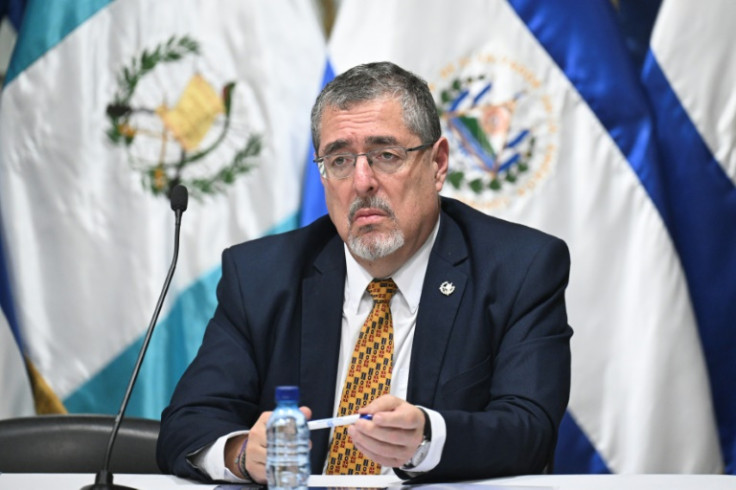
Bernardo Arévalo de León was sworn in as president of Guatemala after some ten hours of tension and chaos that put the country on the verge of a constitutional crisis on inauguration day.
At the center of the disputes was part of Congress' refusal to swear in members of Arévalo's party, Semilla, claiming they should take office as independents because of investigations into it. There was also a clash over leading the board that sets the legislative agenda, which ultimately ended up going the way of Semilla.
The delays enraged Arévalo's supporters, who had gathered in downtown Guatemala City for the inauguration. Local media reported that some storm through a line of riot police near congress, demanding lawmakers go ahead with the scheduled proceedings.
"What they are doing is delaying the installation of Congress, of the tenth legislature, because they do not want to give office to President Arevalo," said deputy Jose Ines Castillo.
The presidents of Chile and Colombia, Gabriel Boric and Gustavo Petro, were among the foreign leaders who waited for the ceremony to proceed, something that finally happened after midnight, local time.
The U.S., the European Union and the Organization of American States had also sent delegations as a show of support, given that Arévalo had face numerous attempts to block his presidency after winning the elections.

Concretely, Movimiento Semilla was suspended by Guatemala's electoral body, Citizen Registry, in November 2023 after the 64-year-old president-elect won the elections by an overwhelming margin.
Arévalo and his team have said that prosecutors with links to a corrupt elite were seeking to block the anti-graft candidate's ascent to the top office. According to Bloomberg, Arévalo accused his opponents of a scorched earth policy on Monday, saying that they would sabotage his administration and make it hard for him to govern.
In the wake of safeguarding democracy and the rule of law in Guatemala, the United States imposed visa restrictions last month on nearly 300 Guatemalan nationals, including 100 political leaders and private sector representatives alongside their families.
Last Monday, Arévalo announced the first gender-balanced cabinet in the country's history. He said during the announcement that he picked some of the honorable staff from his party and promised to create an anti-corruption commission to keep an eye on the work done by his administration.
Carlos Ramiro Martínez, who served as deputy foreign affairs minister four times in the past, including under outgoing President Alejandro Giammattei, will be taking a top spot in the foreign affairs ministry.
© 2025 Latin Times. All rights reserved. Do not reproduce without permission.





